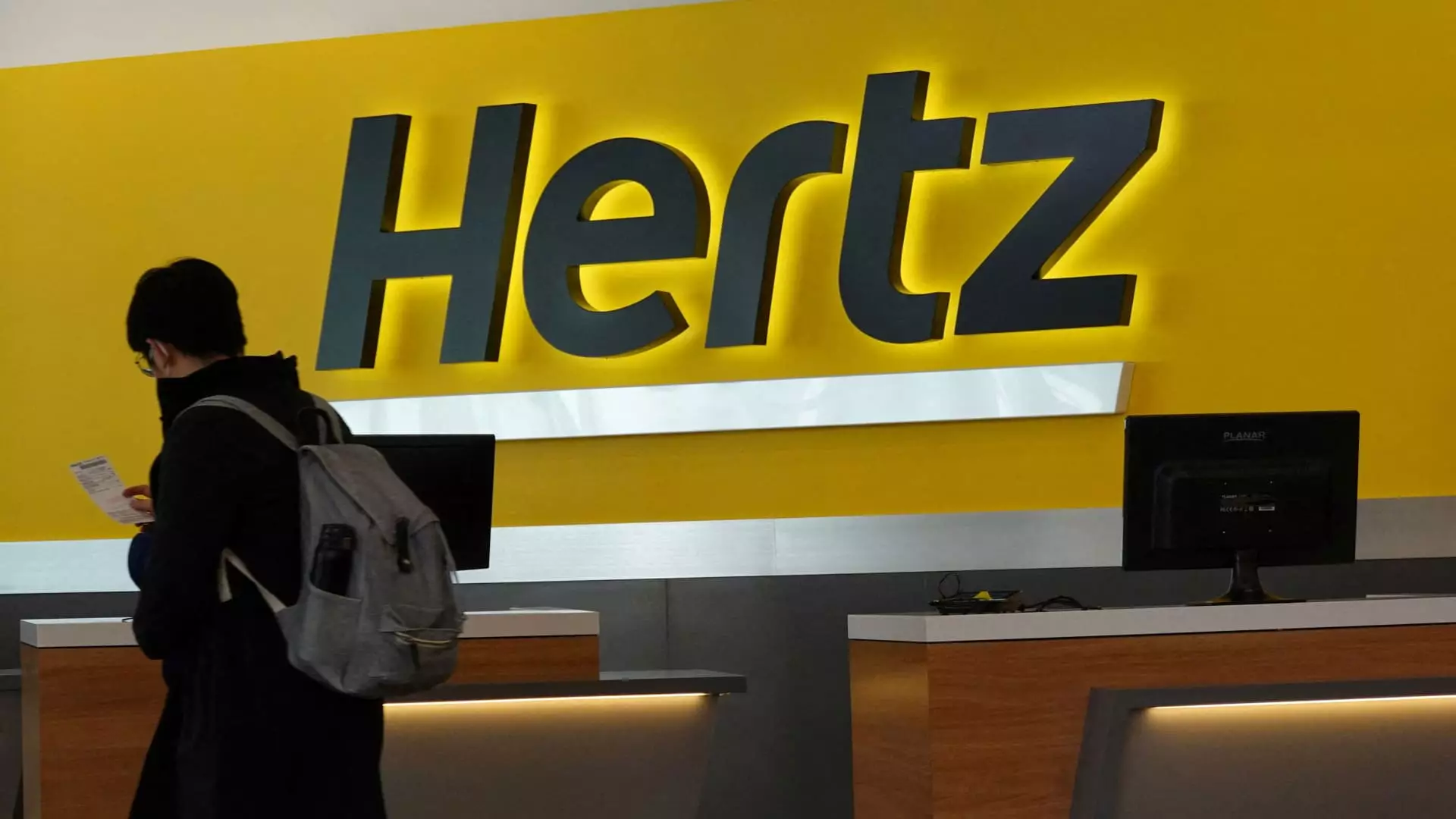The crisis unfolding at Hertz Global underscores not just corporate mismanagement but an ominous future for the entire car rental industry. The company observed a dramatic plummet in its stock on a fateful Tuesday, shedding around 17% in value following the release of grim first-quarter earnings. With losses per share reaching $1.12—significantly worse than analysts’ forecasts—it is unclear how long Hertz can maintain its position in a competitive market fraught with challenges. Just weeks prior, the stock had seen a boost, primarily influenced by substantial investments from high-profile figures like Bill Ackman. However, the fleeting optimism evaporated almost instantaneously after Hertz’s financial disclosures, revealing a troubling disconnect between Wall Street expectations and the company’s harsh reality.
Questionable Financial Maneuvers
In a move that raises eyebrows, Hertz announced a $250 million stock offering during its quarterly results call, ostensibly aimed at “deleveraging.” Yet this tactic seems to be less about financial prudence and more about masking deeper structural incompetencies. CFO Scott Haralson attempted to spin the stock offering as a strategic maneuver to improve the company’s earnings profile, but the underlying message is one of desperation. The mechanism is a classic case of playing with smoke and mirrors—attempting to shore up investor confidence, while masking the blemishes that are increasingly evident.
What should alarm investors is not merely the news of a new stock offering, but what it suggests about Hertz’s future. With declining revenue—automotive sales falling short of $2 billion when projections suggested a solid goal—Hertz is grappling with its identity. The company is not just issuing stock to boost liquidity; it is a signal that sound financial grounding remains elusive, putting the entire operation and investor trust at risk.
The Erosion of Market Trust
Compounding the situation, Hertz’s reduced fleet capacity paints a stark picture of its struggling business model. With a fleet down 8%, the company is intentionally choosing to offer fewer cars amid declining bookings—a perplexing strategy that may seem wise at first but ultimately smacks of self-defeat. CEO Gil West spoke of the desire to “create more demand than we can satisfy,” but this aspiration feels overly optimistic in an environment where consumer sentiments are fragile, and external factors like auto tariffs further complicate matters.
Critically, Hertz faces an uphill battle against intense competition, not just from traditional rental agencies but also emerging ride-sharing platforms that cater to a shift in consumer habits. The decline in U.S. tourism post-pandemic further exacerbates the battle for relevance, and Hertz’s operational austerity is likely to backfire.
Addressing Broader Market Issues
The challenges faced by Hertz reflect larger, systemic issues plaguing the car rental industry. Lower consumer sentiment paired with increasing vehicle prices due to tariffs paints a grim picture of external pressure that tech-savvy and resilient companies continue to adapt to. In a world where flexibility and responsiveness to consumer needs are vital, Hertz’s attempt to “prune revenue” instead of innovating will likely repel consumers and investors alike.
Mattress manufacturers and fast-food purveyors have adapted to changing consumer desires. However, Hertz is mired in its outdated business practices, preferring to focus on shrinking their offerings rather than mobilizing its assets toward better consumer engagement. The abrupt 90% spike in its stock value earlier in the year felt less like a seasoned rebound and more like a house of cards, teetering on the brink of collapse.
The Importance of Forward-Thinking Leadership
Strong leadership is critical during periods of financial turbulence, yet Hertz’s recent performance leaves much to be desired. Instead of forward-thinking strategies that could secure future viability, the company seems encumbered by reacting to immediate financial pressure. As more organizations pivot toward embracing agile methodologies and digital platforms, Hertz’s reliance on old-school practices not only diminishes its competitive edge but also risks fading into irrelevance.
The future of Hertz seems uncertain at best. The traditional auto rental model is in dire need of reinvention, and unless Hertz comprehensively re-evaluates its strategies and priorities, it may find itself trapped in a downward spiral, struggling to recapture the trust of investors and consumers alike. What may once have been profitable in a more stable market is now a cautionary tale, encapsulating the consequences of stagnation in a rapidly transforming economic landscape.

